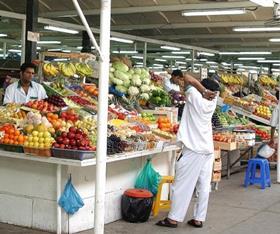
Spanish fruit and vegetable exporters are aiming to strengthen their strategic position within Middle Eastern markets, which they believe could offer potentially large sales for their exports.
With the aftereffects of the German E.coli crisis and subsequent collapse in European fresh produce consumption still being felt in Spain, the country’s exporters are increasingly seeking new market options, and view the Middle East as having strong potential.
For Josep Lluís Trilla, sales director of Spanish topfruit and stonefruit exporter Actel, the Middle East market is a market worth exploring from a strategic point of view, even though the company’s sales volume to the region is currently very modest.
“The importance of the Middle East and the Arab world in general is small in volume terms, but if we look at what we are producing today, it is a very interesting market strategically because it has a large population and a very high consumption of fruit,” he said.
At the current time, Actel exports a small share of its annual production of 600,000 tonnes of peaches, nectarines, apples and pears to the Middle East, with the latter product the largest in volume terms sold to the market.
Although Trilla says there are no confirmed plans for staging any promotional initiatives to increase Actel’s involvement in the region, he said the company is aiming to build on the work it has already done and increase its presence with established contacts.
In common with Actel, Almeria-based cooperative group Unica also views the Middle East as a potential source of growth, although its exports to the region are also relatively low.
According to Unica’s managing director, Enrique de los Ríos, the Middle East has a “increasing importance” as an export destination due to “the size of the market and its strategic worth”.
But he added that any exporter looking to work in the Middle East must be made aware of the “high quality the market demands” and the logistical challenges involved in reaching it.



